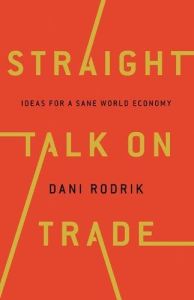Join getAbstract to access the summary!

Join getAbstract to access the summary!
Dani Rodrik
Straight Talk on Trade
Ideas for a Sane World Economy
Princeton UP, 2017
What's inside?
Growing protectionist sentiment signals that the world needs a better approach to global trade.
Recommendation
Today, international trade intertwines countries’ economies more closely than ever before. This state of the world is a victory for those who, since the end of World War II, have promoted free trade as the solution to global ills. However, trade has become a target of popular backlash and new tariff battles. Many people believe that nations have created their own Frankenstein monster in complex global treaties. In a collection of his previously published articles, economist Dani Rodrik offers a wide-ranging overview of the complications of early 21st-century trade agreements. He coalesces his thoughts into seven intriguing principles for “a sane world economy.” Though his text is often abstract and tends to meander, Rodrik nevertheless makes some salient points about fair and equitable trade and the need for strong nation-states. While always politically neutral, getAbstract recommends his thought-provoking work to executives, trade experts and economists.
Summary
About the Author
Dani Rodrik is a professor at Harvard University’s John F. Kennedy School of Government.
























Comment on this summary